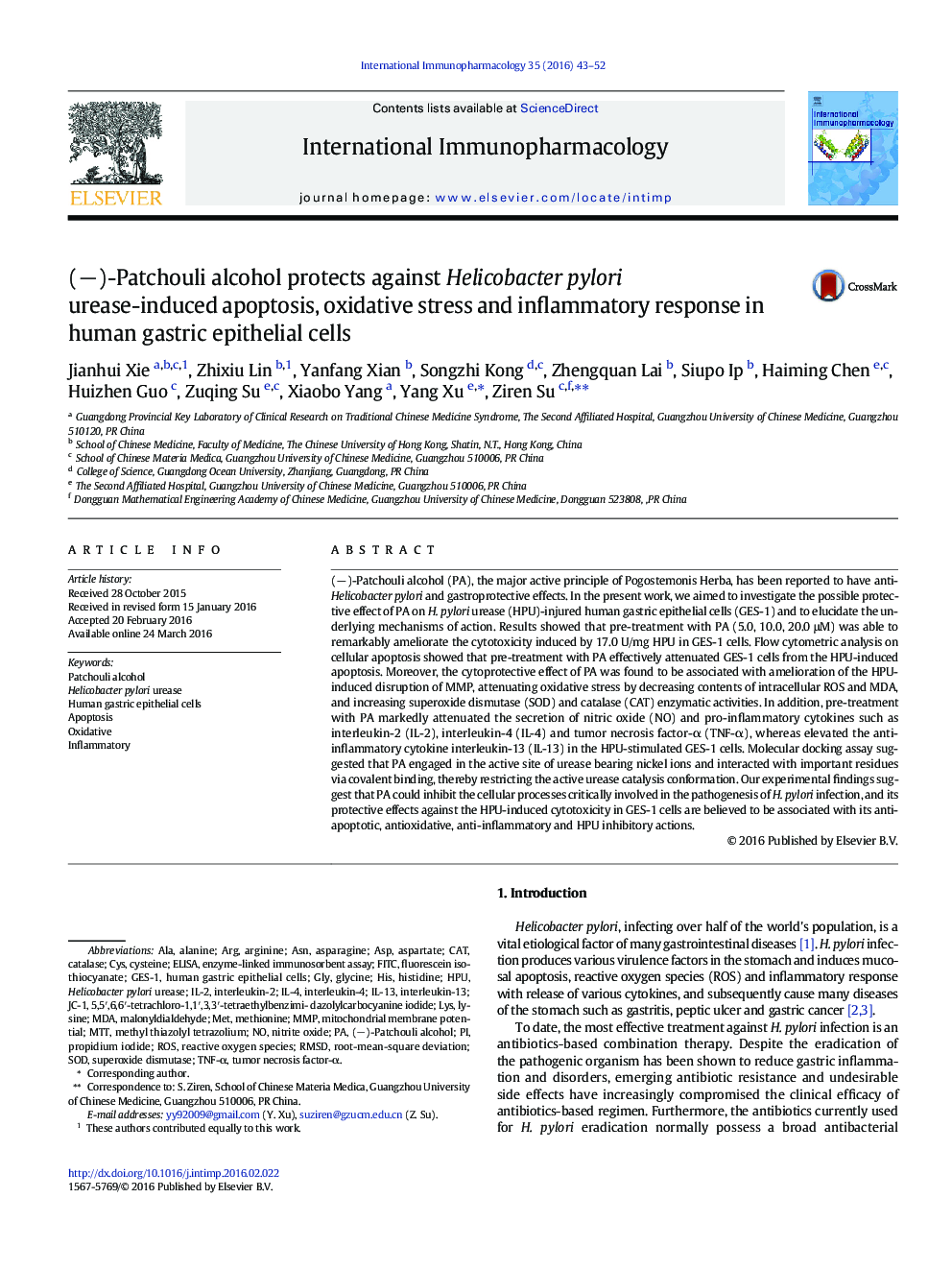| کد مقاله | کد نشریه | سال انتشار | مقاله انگلیسی | نسخه تمام متن |
|---|---|---|---|---|
| 2540296 | 1559755 | 2016 | 10 صفحه PDF | دانلود رایگان |

• It is first demonstrated that patchouli alcohol could inhibit the cellular processes critically involved in the pathogenesis of H. pylori infection.
• Patchouli alcohol engaged in the active site of urease bearing nickel ions and interacted with important residues via covalent binding, thereby restricting the active urease catalysis conformation.
• The protective effects of patchouli alcohol against the H. pylori urease-induced cytotoxicity in GES-1 cells are believed to be associated with its anti-apoptotic, antioxidative, anti-inflammatory and H. pylori urease inhibitory actions.
(−)-Patchouli alcohol (PA), the major active principle of Pogostemonis Herba, has been reported to have anti-Helicobacter pylori and gastroprotective effects. In the present work, we aimed to investigate the possible protective effect of PA on H. pylori urease (HPU)-injured human gastric epithelial cells (GES-1) and to elucidate the underlying mechanisms of action. Results showed that pre-treatment with PA (5.0, 10.0, 20.0 μM) was able to remarkably ameliorate the cytotoxicity induced by 17.0 U/mg HPU in GES-1 cells. Flow cytometric analysis on cellular apoptosis showed that pre-treatment with PA effectively attenuated GES-1 cells from the HPU-induced apoptosis. Moreover, the cytoprotective effect of PA was found to be associated with amelioration of the HPU-induced disruption of MMP, attenuating oxidative stress by decreasing contents of intracellular ROS and MDA, and increasing superoxide dismutase (SOD) and catalase (CAT) enzymatic activities. In addition, pre-treatment with PA markedly attenuated the secretion of nitric oxide (NO) and pro-inflammatory cytokines such as interleukin-2 (IL-2), interleukin-4 (IL-4) and tumor necrosis factor-α (TNF-α), whereas elevated the anti-inflammatory cytokine interleukin-13 (IL-13) in the HPU-stimulated GES-1 cells. Molecular docking assay suggested that PA engaged in the active site of urease bearing nickel ions and interacted with important residues via covalent binding, thereby restricting the active urease catalysis conformation. Our experimental findings suggest that PA could inhibit the cellular processes critically involved in the pathogenesis of H. pylori infection, and its protective effects against the HPU-induced cytotoxicity in GES-1 cells are believed to be associated with its anti-apoptotic, antioxidative, anti-inflammatory and HPU inhibitory actions.
Figure optionsDownload as PowerPoint slide
Journal: International Immunopharmacology - Volume 35, June 2016, Pages 43–52